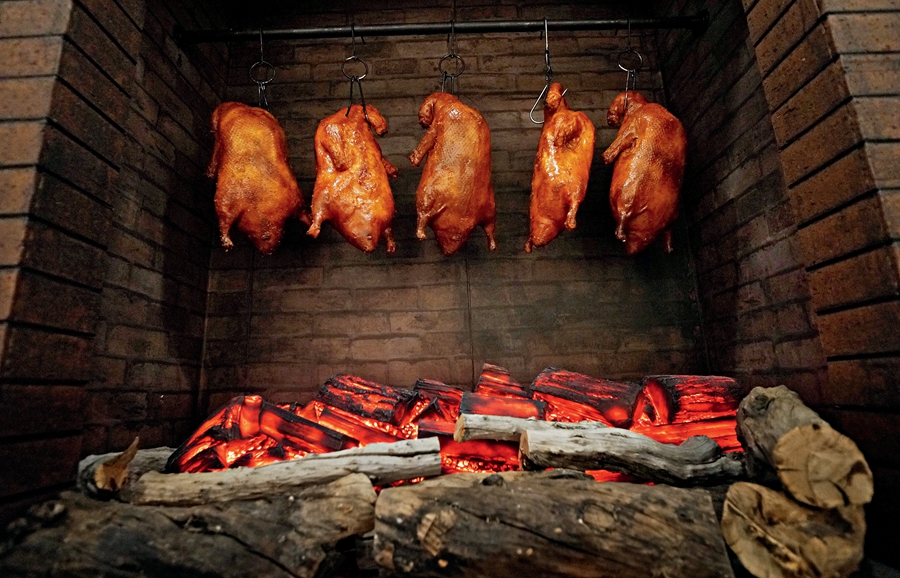
Nowadays, old norms have changed and on New Year’s Eve, restaurant owners all rack their brains to concoct a special family reunion dinner to compete with competitors. While for ordinary people, the tradition of reuniting and having a family dinner has been well preserved. Whether eating at home or in restaurants, a table of exquisite delicacies must be prepared to celebrate a bumper year and to wish for an auspicious start.
Peking roast duck is a must-have on this occasion. It is prepared in two ways: grilled in a closed oven (where the heat is from the inner oven wall) or in an open oven (where the duck is hung over a heat source – firewood). In 2008, Bian Yi Fang’s closed-oven roast ducks and Quanjude’s open-oven roast ducks were both named China’s National Intangible Cultural Heritage.
In the days when food stuffs and commodities were in short supply, meat was a luxury for most families, and thus roast duck was a much appreciated mouth-watering delicacy. As the living standard in China has improved, eating well and eating healthy are the new pursuits of both diners and chefs. In response, Bian Yi Fang has created a new type of roast duck, known as the “closed-oven crispy roast duck with vegetable fragrance.”
First, the duck is marinated in a variety of vegetable extracts, and then roasted in a closed stove. This way, the nutritional content of the duck is well preserved, and its flavor is enhanced by the vegetable extracts. When removed from the oven, the duck is crispy outside and tender inside, meaty but not greasy. To fit different preferences of customers, it is served with side dishes such as Chinese Toon tree sprout, radish shoot, mint leaves, and lettuce. This new iteration of Peking roast duck is the highlight of many families’ Chinese New Year dinners.
SUN LIXIN is a senior chef.